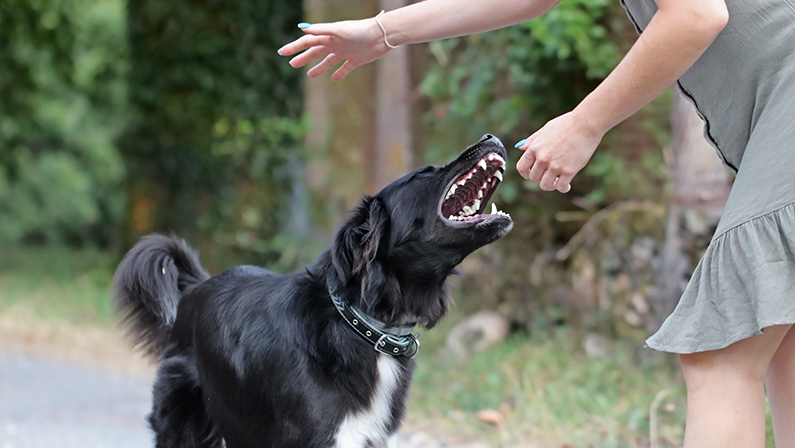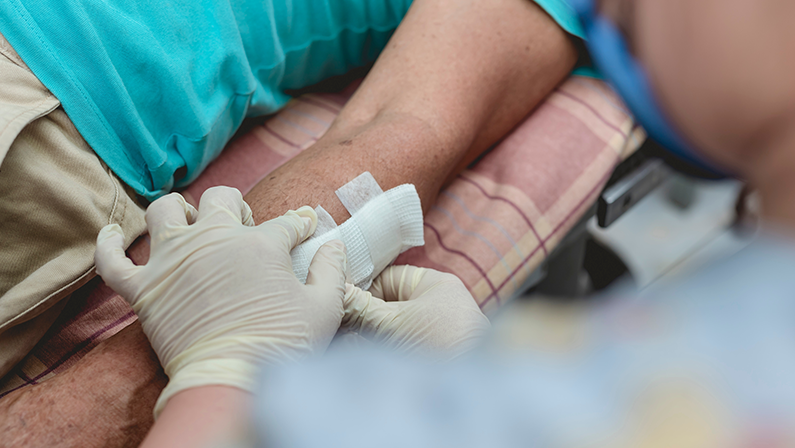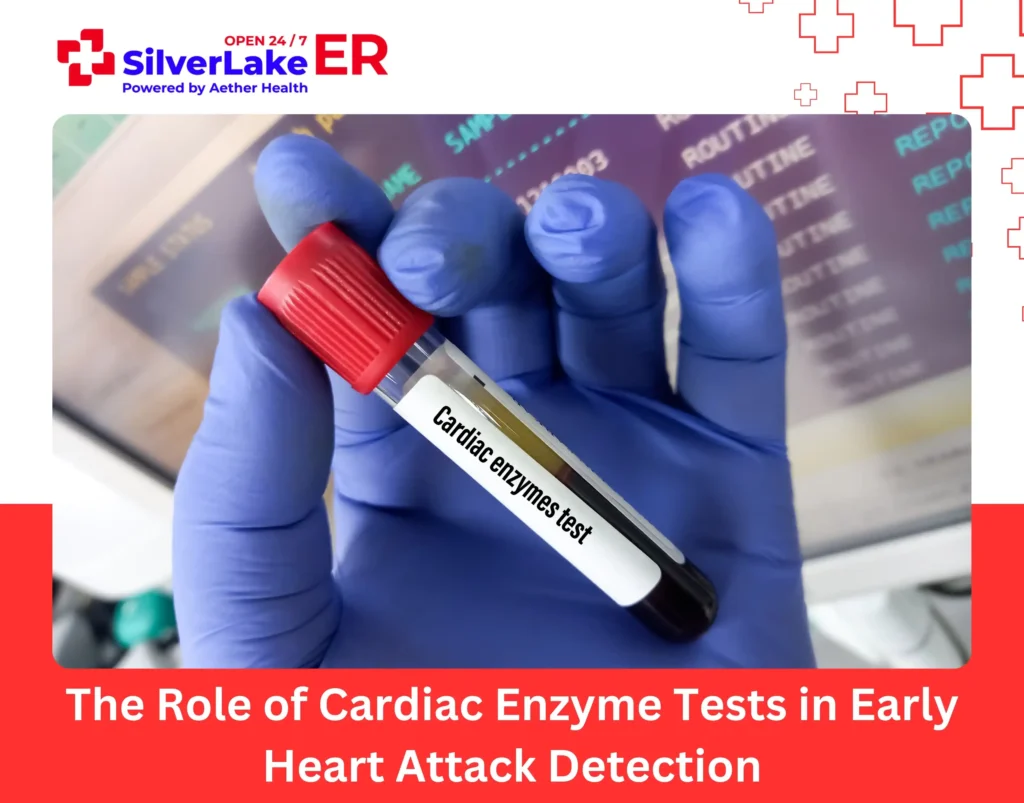Dog bites, though uncommon, can be distressing and potentially dangerous situations. Knowing what steps to take immediately after you get Bit By A Dog can make a significant difference in your recovery. In this guide, we will outline the essential actions to take after being bitten by a dog, ensuring your safety and well-being.
What are the immediate steps to take after getting bitten by a dog?
What to do after being bitten by a dog? The moments following a dog bite are critical.
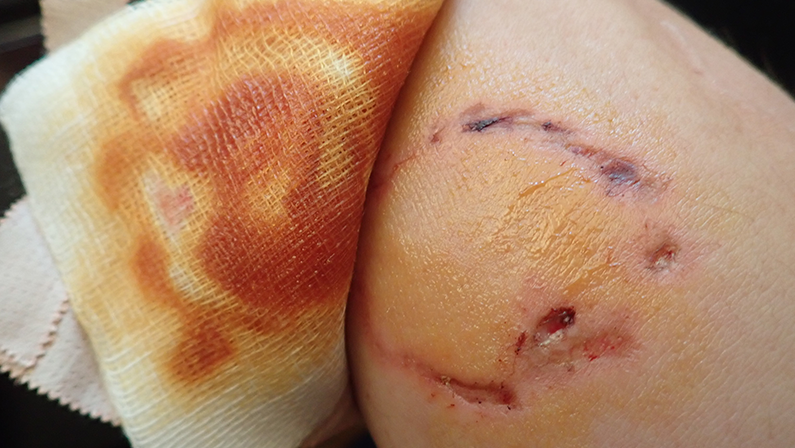
Follow these immediate steps to promote healing and prevent complications:
1. Examine the Wound
Inspect the wound to determine if the skin is broken. If it is, proceed with caution to prevent further injury.
2. Wash the Wound
Thoroughly clean the wound with mild soap and warm water to reduce the risk of infection. Gently pat it dry with a clean cloth.
3. Stop Bleeding
Apply pressure to the wound using a clean cloth until the bleeding subsides. This helps control blood flow and facilitates clotting.
4. Apply Antibiotic Ointment
If available, apply a thin layer of over-the-counter antibiotic ointment to the wound. This can help prevent infection.
5. Cover the Wound
Protect the wound by covering it with a clean, dry bandage. This helps keep dirt and bacteria out, reducing the risk of further complications.
How should you assess the severity of the dog bite wound?
Not all dog bites are the same. Assess the wound for the following factors:
Depth
Determine if the bite is superficial or if it has penetrated deeper layers of skin and tissue.
Location
Consider the location of the bite, as wounds on certain areas of the body may be more susceptible to complications.
Size
Evaluate the size of the wound, as larger or more extensive bites may require additional care.
Is immediate first aid necessary for a dog bite?
Yes, immediate first aid is crucial after a dog bite. Prompt action can significantly reduce the risk of infection and other complications. Visit Aether Health – SilverLake ER for the best treatment.
How should you clean and care for a dog bite wound at home?
Proper care at home is essential for preventing infection and promoting healing:
1. Clean the Wound
Wash the wound with mild soap and water, and pat it dry gently.
2. Apply Antibiotic Ointment
If available, apply an over-the-counter antibiotic ointment to reduce the risk of infection.
3. Change the Bandage
Regularly change the bandage to maintain cleanliness.
When is it absolutely critical to seek immediate medical attention after you get Bit By A Dog?
Seek immediate medical attention if:
- The wound is deep or extensive.
- The bleeding doesn’t stop after applying pressure.
- Signs of infection appear.
- You haven’t had a tetanus shot in the last five years.
How do you prepare for a visit to the emergency room after a dog bite?
Before visiting the ER, gather relevant information, including your medical history, details of the bite incident, and any known allergies or medications.
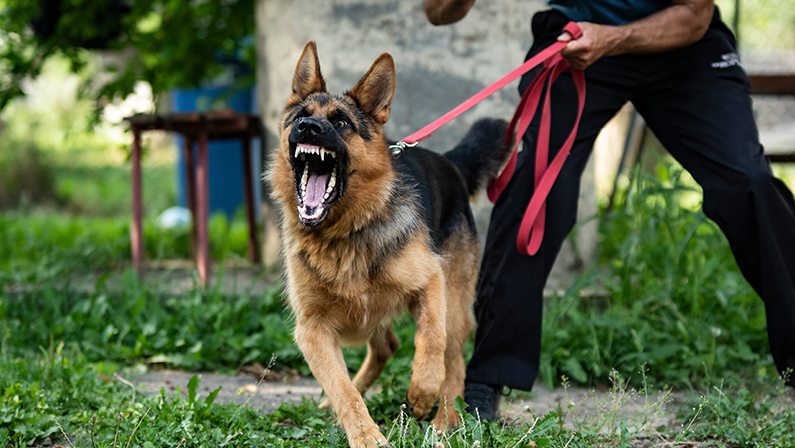
FAQs About Dog Bites
In the aftermath of a dog bite, questions and concerns can abound. From immediate first aid to long-term care, this FAQ aims to provide clear and concise answers to the most common queries surrounding dog bites, ensuring you have the knowledge you need in this critical situation.
What are the risks of infection after a dog bite, and how can you prevent them?
Infection is a significant concern after a dog bite. Look out for symptoms like redness, swelling, and increased pain. To prevent infection, keep the wound clean, apply antibiotic ointment, and seek medical attention if signs of infection occur.
What are the potential complications of untreated dog bites?
Untreated dog bites can lead to various complications, including infection, tissue damage, and even systemic illness. It’s crucial to seek timely medical attention.
What over-the-counter medications can help after a dog bite?
Over-the-counter pain relievers like ibuprofen or acetaminophen can help manage pain and reduce inflammation. However, consult a healthcare professional before use.
Are there vaccinations or tetanus shots required after a dog bite?
Depending on the circumstances and your immunization history, a tetanus shot and, in some cases, rabies vaccinations may be necessary. Consult a healthcare professional for guidance.
What documentation and information should you share with medical professionals?
Provide details about the incident, including how it occurred, the dog’s owner (if known), and any pre-existing medical conditions or allergies. This information helps healthcare providers make informed decisions.
Is follow-up care necessary after receiving initial treatment for a dog bite?
Yes, follow-up care is often necessary after receiving initial treatment for a dog bite. Follow-up appointments with a healthcare professional are essential to monitor the wound’s healing progress, assess for signs of infection, and ensure that no complications have developed.
Ensuring Your Safety and Well-being After a Dog Bite
Being bitten by a dog can be a frightening experience, but knowing how to respond promptly and appropriately can make all the difference in your recovery. By following these steps and seeking timely medical attention when needed, you can ensure the best possible outcome after a dog bite. Remember, your health and well-being are paramount.
Aether Health – SilverLake ER is equipped to provide comprehensive care for individuals who have experienced dog bites. Their expert medical team is experienced in treating a wide range of injuries, including those resulting from animal encounters. Contact them today.

